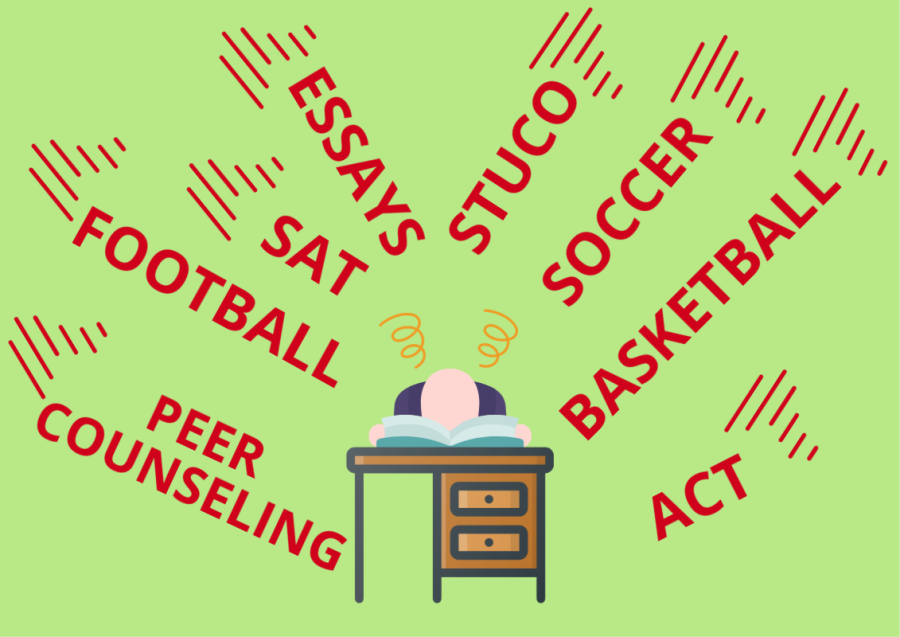ACT’s Are Boring, But You Aren’t!
On March 1st, 2023, most colleges offering a regular application were starting to close up shop, signifying that the process is now officially over. In the meanwhile, seniors everywhere are awaiting responses to their applications that they worked essentially all of high school for. But is this college application process even worth doing, and is there another way to apply for college than the standard resume and essay?
Some people say the college application process is flawed and that there is another way to apply. They state how talking about your passions or something that you are interested in in-depth will give you the exact same guarantee to getting into college as regularly applying with essays and boring lists of extracurriculars.
There are a number of different ways that the college application process is corrupt. One of these ways is the manipulation of ACT and SAT scores. There have been multiple cases across the United States of people cheating on their ACT and SAT scores that are getting federally charged over the issue. One of these cases is the case of William Singer, which was detailed in the 2019 Netflix documentary The College Admissions Scandal.
William Singer is a college counselor who had a consulting business. He is the mastermind behind helping 50 people get their kids into ivy league schools by creating false test scores (as well as faking athletic statuses). He was able to do this by communicating with the parents about “someone [taking] the tests in place of [their children]; a bribed test monitor [assisting] the students in choosing the correct answers; or the monitor [changing] the answers after reviewing them,” according to Isabel Thottam from higheredconnects.com. Situations like these, while rare, make it hard to decipher between applications that are true and ones that are fake. It also makes applications more competitive than ever, which means rising college freshmen need to outshine others more than they are already trying to do.
However, what some people have been arguing in recent years is to instead focus on talking about the things that each student is actually interested in rather than their academic scores. That way, the colleges that they are applying for are able to get to know their applicants a little bit more and are not fed the same mundane lists of achievements.
One of these people that believes in interests over academics is Cal Newport, an American author. Newport explains that “exceptionally impressive accomplishments are rarely planned out in advance,” and how they normally follow the same pattern of “the student [choosing] something that seems interesting, the student [following] through and [completing] the pursuit, and the student [surveying] the new opportunities this makes available,” (calnewport.com). By following this cycle, juniors and seniors in high school can develop activities that they are truly interested in and can talk about for days on end for their college applications. This cycle can also be a destresser for high schoolers applying for college since they don’t have to worry about a huge list of academic and extracurricular goals that they have to ‘do’ in order to get in.
And this process has been proven to work. Newport told the story of a girl named Olivia who wanted to go to the university of Virginia, but did not have the stellar academic performance to get in (not to Virginia’s standards), and she had a minimal amount of extracurriculars. However, she decided to apply for the full-ride scholarship that Virgina offered.
Olivia had a gigantic passion for marine zoology, and she had a long-lasting conversation with the committee that was interviewing her for the scholarship about it. The committee was so impressed by Olivia’s interest in marine zoology that they gave her the full-ride, and Newton describes this whole situation as Olivia “[rejecting] the list quality hypothesis,” and instead embracing “the interestingness hypothesis,” (calnewport.com). In other words, Olivia put her passions over her academic and extracurricular ‘lists’ and won a full-ride scholarship for it.
While there are many flaws within the college application process, there are ways to overcome these flaws, one of them by being yourself. Colleges should know who you are as a person instead of what you are (defined by your life in high school). This method of showing your passions and interests over your academic scores and extracurriculars has been proven to work for different individuals, and there is hope of this method being able to spread across the country and used more in the college application process.




